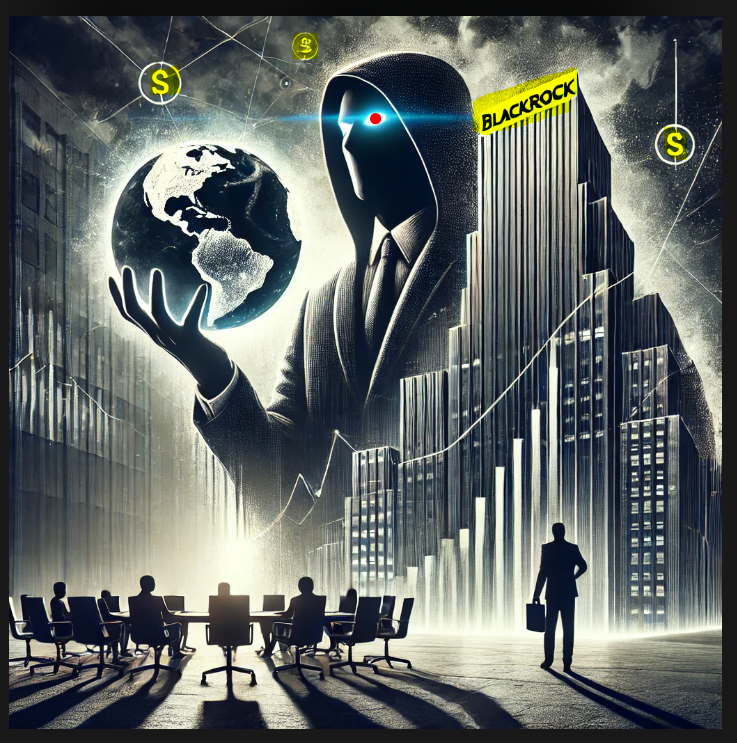How BlackRock Secretly Rules the Global Economy
In the world of finance, few names command as much influence as BlackRock. With its assets under management (AUM) exceeding $8 trillion, BlackRock has become a major player in the global financial system. But despite its sheer size and power, many people remain unaware of just how deep its reach extends into the global economy.
The Rise of BlackRock
Founded in 1988 by Larry Fink and a group of financial professionals, BlackRock initially focused on risk management and fixed-income investments. Today, it stands as the largest asset manager in the world, managing investments for governments, corporations, and individual investors. Its massive portfolio spans various sectors, including stocks, bonds, real estate, commodities, and even private equity.
The company’s growth is a direct result of its ability to manage risk and deliver consistent returns to its clients, which has attracted institutional investors and wealthy individuals alike. BlackRock’s scale allows it to have an outsized influence over the companies and industries in which it invests.
Influence Over Global Corporations
BlackRock’s influence is most apparent in its ability to shape the policies and operations of global corporations. Through its ownership stakes in thousands of companies worldwide, BlackRock can exercise significant control over corporate decision-making. BlackRock is often one of the largest shareholders in major corporations like Apple, Microsoft, and ExxonMobil, giving it voting power on key issues, such as board elections, mergers, acquisitions, and executive compensation.
In recent years, BlackRock has used its influence to push for environmental, social, and governance (ESG) initiatives within companies. BlackRock’s CEO Larry Fink has made public statements about the importance of sustainability and the need for corporations to address climate change. By using its shareholder power, BlackRock has pressured companies to adopt ESG policies, which have a far-reaching impact on business practices across the globe.
BlackRock and Central Banks
One of the most controversial aspects of BlackRock’s reach is its relationship with central banks, particularly in times of economic crisis. During the 2008 financial crisis, BlackRock was called upon by the U.S. Federal Reserve to help manage the bailout of failing financial institutions. Similarly, in the wake of the COVID-19 pandemic, BlackRock was hired by the Federal Reserve to manage emergency corporate bond-buying programs. This relationship between BlackRock and central banks raises concerns about the concentration of power in the hands of a few financial institutions.
The Secretive Nature of BlackRock’s Operations
Despite its enormous influence, BlackRock operates largely behind the scenes. Unlike publicly elected officials or government agencies, BlackRock is a private company, and much of its decision-making is shielded from public scrutiny. This secrecy has led to concerns about the lack of accountability and transparency in BlackRock’s operations.
BlackRock’s role in global finance is often described as “too big to fail,” which gives it a level of immunity from regulatory scrutiny that smaller players in the financial system don’t enjoy. Critics argue that this unaccountable power allows BlackRock to prioritize its own profits over the well-being of workers, communities, and the planet.
The Impact on Everyday Life
BlackRock’s influence goes beyond the boardrooms of multinational corporations. Through its investments in real estate, BlackRock has become a significant player in housing markets across the world. In some cities, BlackRock’s real estate investments have been linked to rising rents and housing shortages, as the company buys up large swaths of residential properties, driving up prices.
Furthermore, BlackRock’s investments in the energy sector, including fossil fuels, have raised concerns about its impact on climate change. Critics argue that BlackRock continues to invest in polluting industries, despite its public commitment to sustainability.
BlackRock’s dominance in the global economy is unparalleled. Through its massive portfolio, strategic influence, and close relationships with central banks, BlackRock wields immense power that affects everything from corporate policy to global financial stability. Yet, despite its central role in the global economy, it remains a largely secretive entity, with little oversight or accountability for its actions.
As BlackRock continues to expand its reach, the question remains: how much power should one private company hold over the fate of the world’s economy? In an era where financial institutions seem to control more than ever before, the rise of BlackRock may signal a future where corporate giants reign supreme, often at the expense of the public interest.



